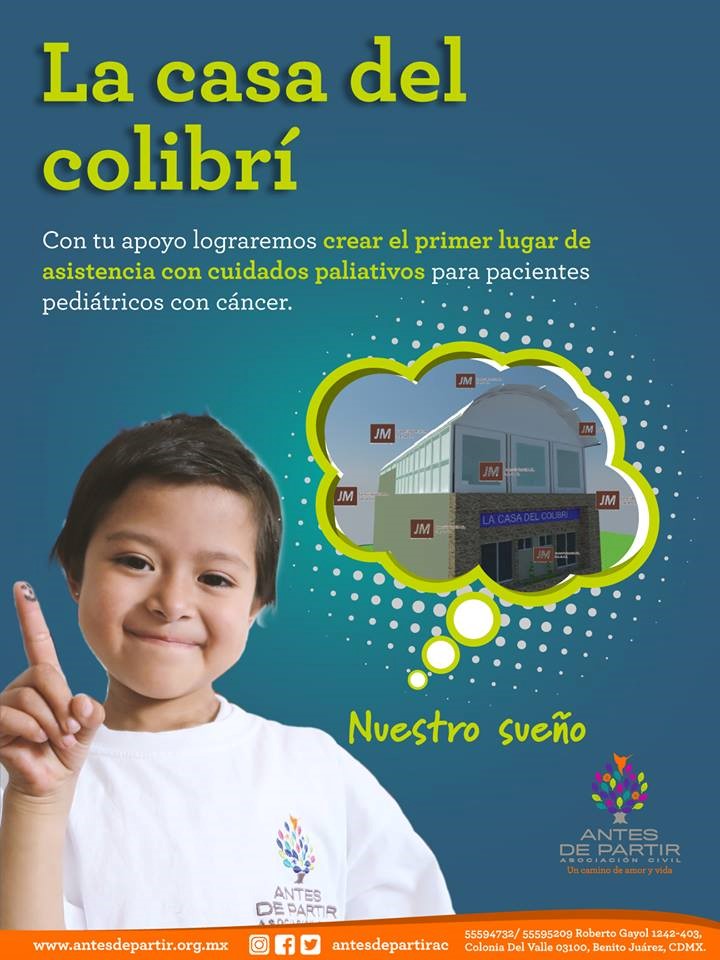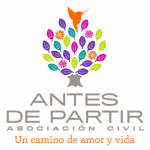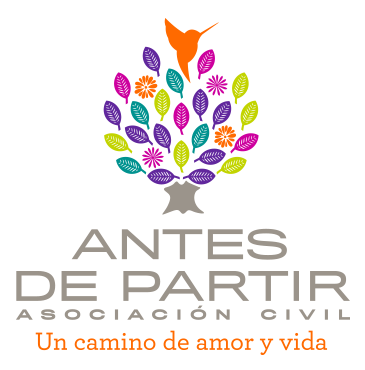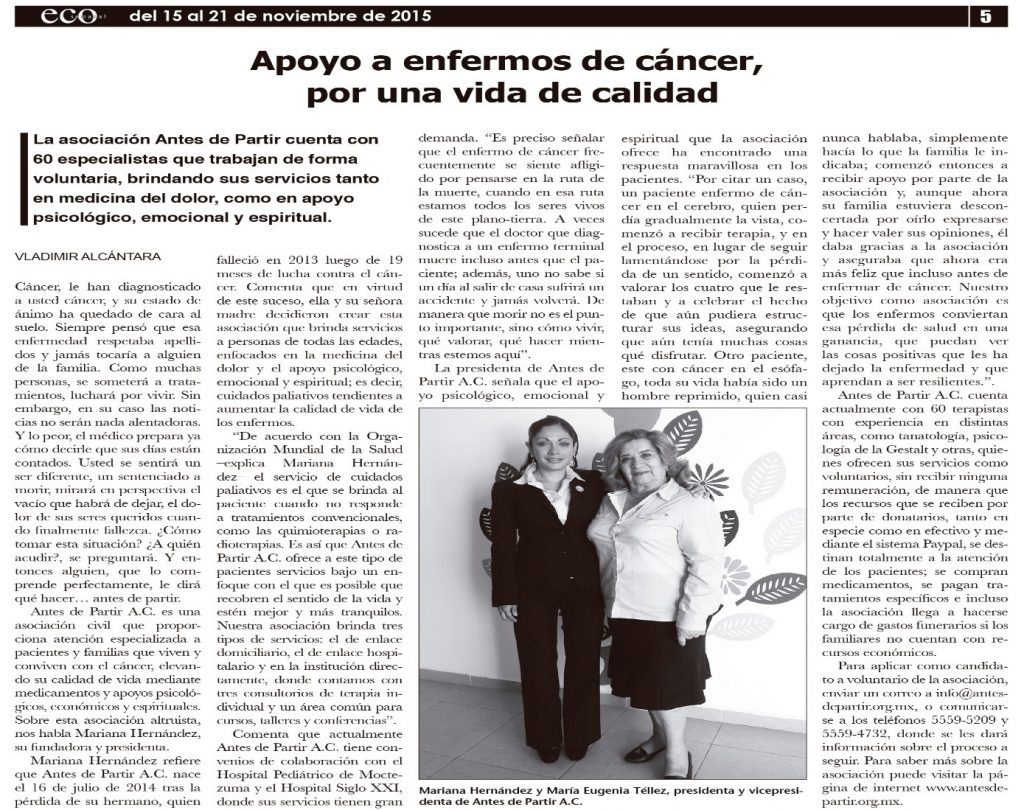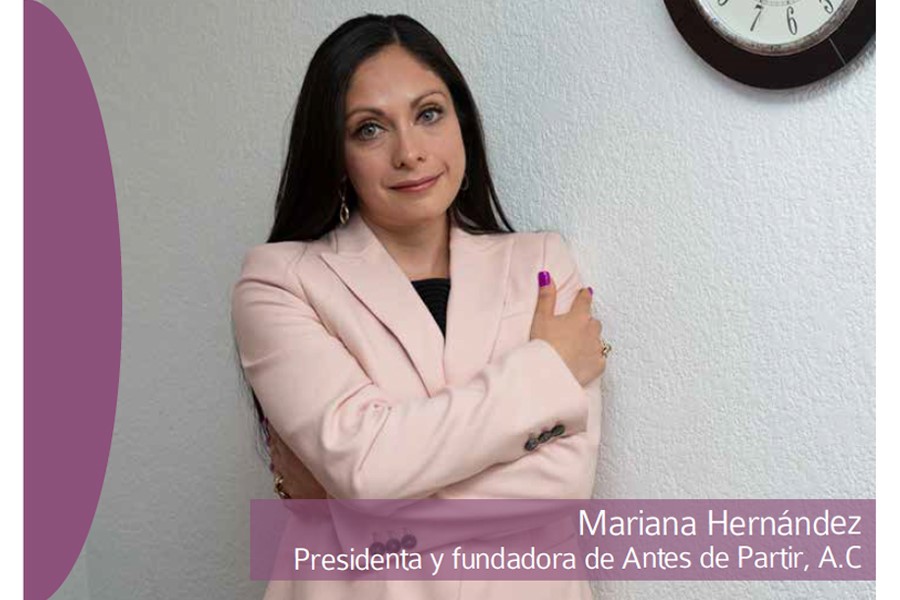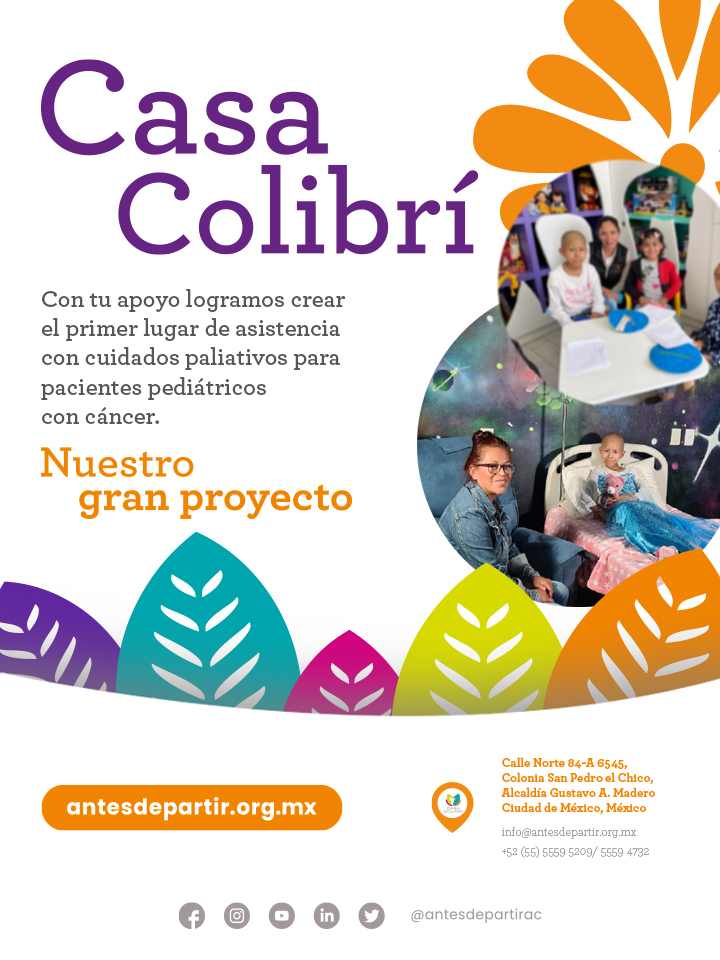Manuals
Manuals
Guide to nutrition during cancer treatment
- Manuales
With the editorial support of Antes de Partir “A path of love and life”, the first “Nutrition Manual for Cancer Patients” by Dr. Julia Salinas Dücker and Michelle Brunel Couttolenc comes to light.
Cancer is a disease that evolves rapidly, deteriorating the patient's vital functions, which prevents the use of food and its nutrients. With this in mind, Dr. Julia Salinas Dücker offers to reduce eating problems caused by surgery, radiotherapy and chemotherapy, making clear and simple nutrition recommendations after the end of treatment.
Nutrition is a very important part of cancer treatment since eating the right foods before, during, and after treatment will help you feel better and stay strong and in good spirits. Not everyone has eating-related side effects, but this guide will help if that's the case.
Nutrition During Cancer Treatment is a guide for patients and their families that is not intended to replace or offer professional medical advice to individual patients. All decisions and health instructions must be made with the specialist. Nutrition Manual for Cancer Patients has been prepared with the best intention of supporting the nutrition of cancer patients, which hopes to become a permanent reference text for this and their families.
Click on the following link to open the file: Nutrition Guide for Cancer Treatmenton el apoyo editorial de Antes de Partir “Un camino de amor y vida”, sale a la luz el primer “Manual de Nutrición para Enfermos con Cáncer” de la Dra. Julia Salinas Dücker y Michelle Brunel Couttolenc.
El cáncer es una enfermedad que evoluciona rápidamente, deteriorando las funciones vitales del paciente, lo cual impide el aprovechamiento de los alimentos y sus nutrientes. Pensando en ello, la Dra. Julia Salinas Dücker ofrece disminuir los problemas alimentarios causados por la cirugía, la radioterapia y la quimioterapia, haciendo recomendaciones claras y sencillas sobre nutrición después de finalizado el tratamiento.
La nutrición es una parte muy importante del tratamiento contra el cáncer ya que comer los alimentos adecuados antes, durante y después del tratamiento ayudará a sentirse mejor y mantenerse fuerte y de buen ánimo. No todas las personas presentan efectos secundarios relacionados con la alimentación, pero esta guía ayudará si ese fuera el caso.
Nutrición durante el tratamiento contra el cáncer es una guía para pacientes y sus familias que no pretende sustituir ni ofrecer asesoramiento médico profesional a pacientes individuales. Todas las decisiones e indicaciones de salud deben tomarse con el especialista. Manual de Nutrición para Enfermos con Cáncer has sido elaborado con la mejor intención de apoyar en la nutrición del paciente con cáncer, el cual espera convertirse en un texto de consulta permanentemente para éste y sus familias.
Deprecated: ¡La función _register_controls ha quedado obsoleta desde la versión 3.1.0! Usa Elementor\Controls_Stack::register_controls() en su lugar. in /home/i5s360pco0g8/public_html/wp-includes/functions.php on line 6085
With your donation, ¡we can make a difference!
